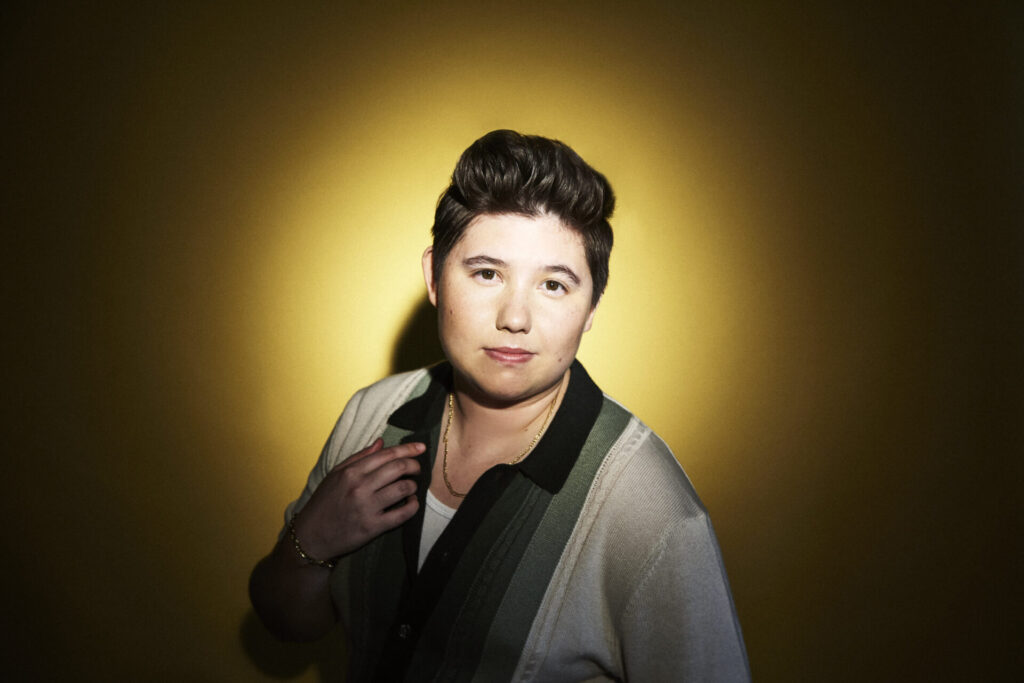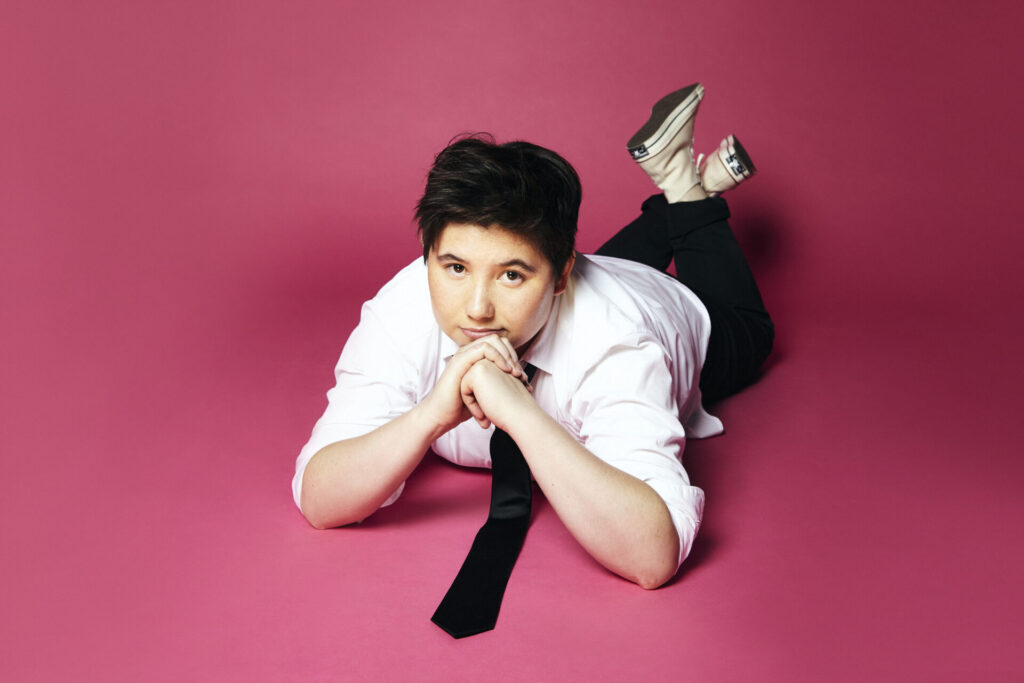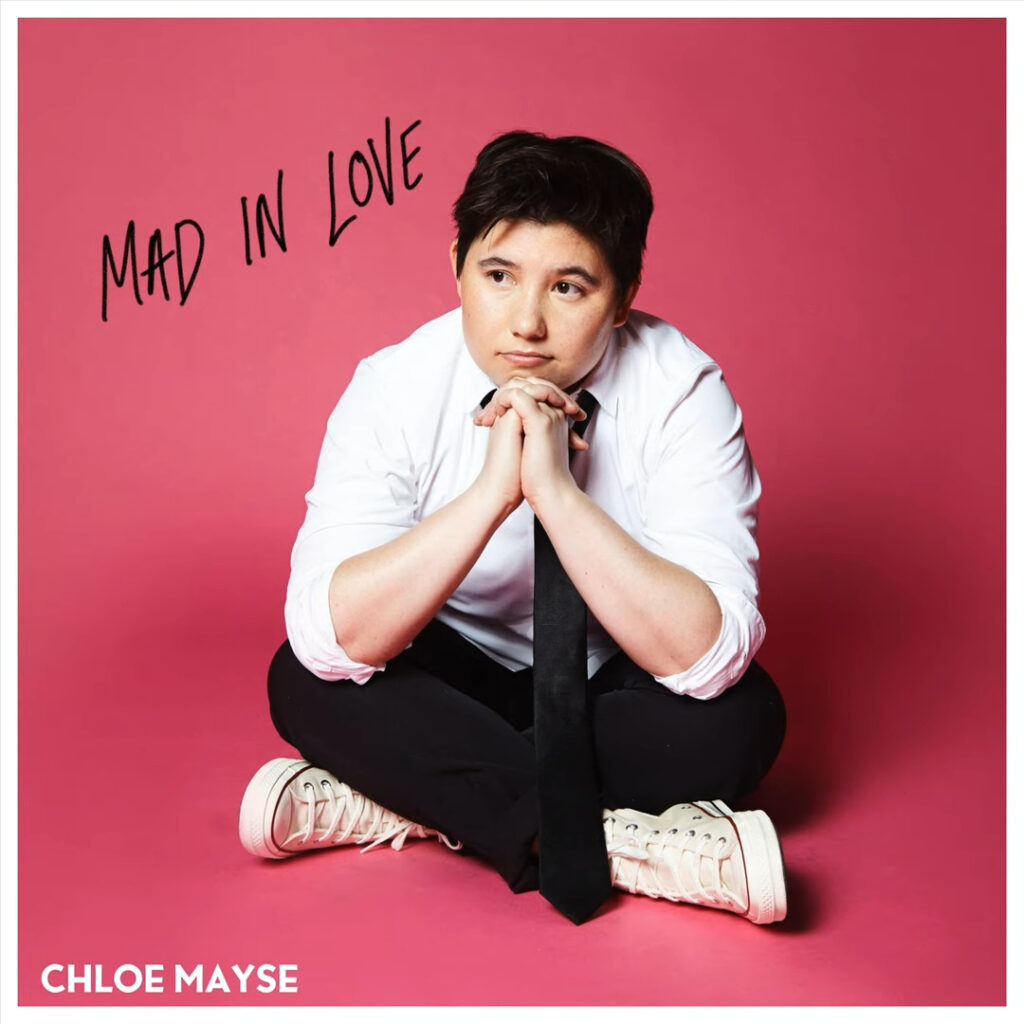Chloe Mayse is a Toronto-based, mixed-Irish, Chinese, and Trinidadian-ancestry singer-songwriter who performs alternative pop-rock music. She won a singing contest in 2014, which gave her the opportunity to perform backup vocals for Tegan and Sara at the JUNO Awards. This was a dream come true for her because Tegan and Sara were internationally popular queer musicians who had a significant influence on her own music. Check out the exclusive interview below:

1. Can you tell us a bit about where you come from and how it all got started?
CHLOE MAYSE: I am from Toronto, Canada. I always loved singing. My sister and I used to perform songs to our family when I was as young as 2 years old. I started taking guitar lessons at 10 and wrote my first song when I was in high school.
2. Did you have any formal training or are you self-taught?
CHLOE MAYSE: I took guitar lessons as a child, but I have only been doing professional vocal training for the last 5 years.
3. Who were your first and strongest musical influences and why the name ‘CHLOE MAYSE?
CHLOE MAYSE: Avril Lavigne and Hilary Duff were my first major musical influences growing up. I have always been a Tomboy, like Avril, and when I was first learning to play guitar, I would try and play their songs. Strongest musical influences are Tegan and Sara because they are queer Canadian artists who have had a long career and create positive change for the LGBTQ+ community. My first name is Chloe and “Mayse” plays off of my legal middle name, which is “May”. I originally wanted my artist name to just be “Chloe”, but there are other music artists that have the name, so I decided to try and stand out with another name added on.
4. What do you feel are the key elements in your music that should resonate with listeners, and how would you personally describe your sound?
CHLOE MAYSE: What’s been consistent with the songs I have released is I love having tons of vocal tracks layered on top of each other, which gives the song a full sound. I enjoy doing harmonies and sometimes changing the key signature or bpm in a bridge section. I would describe my song as alternative pop. It definitely falls under alternative because I don’t think my songs sound like the typical pop or rock song. I am always trying to experiment with my sound on each music project.

5. Do you feel that your music is giving you back just as much fulfillment as the amount of work you are putting into it or are you expecting something more, or different in the future?
CHLOE MAYSE: My passion in life is writing songs. Every time I write a song and complete it, I feel fulfilled because I am doing what I love. For the future I would love to be part of a record label, so I could afford to share more of my music with the world.
6. For most artists, originality is first preceded by a phase of learning and, often, emulating others. What was this like for you? How would you describe your own development as an artist and music maker, and the transition towards your own style, which is known as POP?
CHLOE MAYSE: Well, I grew up listening to pop music. My first CD was the Spice Girls. The first thing I noticed about all the female pop artists when I was growing up is they were super feminine and seemed perfectly polished and perfect. I felt like I couldn’t relate to the pop image and so when I started to write my own music, I was writing indie/acoustic songs and listening to emo/punk music. I fell back in love with the idea of attempting to write a pop song when I saw more alternative artists like Billie Eilish, Paramore and Tegan and Sara come out with pop tracks. These kinds of artists took down the borders of who can be in the pop music world.
7. What’s your view on the role and function of music as political, cultural, spiritual, and/or social vehicles – and do you try and affront any of these themes in your work, or are you purely interested in music as an expression of technical artistry, personal narrative, and entertainment?
CHLOE MAYSE: I think music can be a very effective tool to communicate a message across, which is why artists make songs about politics, the environment, culture, societal issues and religion. I, personally have not yet written a song about these topics because personal narrative usually makes it onto the paper naturally. All my songs are written about my personal experiences in the past and present.
8. Could you describe your creative processes? How do usually start, and go about shaping ideas into a completed song? Do you usually start with a tune, a beat, or a narrative in your head? And do you collaborate with others in this process?
CHLOE MAYSE: My creative process constantly changes its order. Sometimes I will have a melody stuck in my head and I try to figure it out on guitar. Once I can play that melody, I brainstorm story ideas and make up lyrics just to use as a filler. The filler lyrics and melody are recorded onto my phone in voice memos and I just listen back a bunch of times and figure out the real lyrics on guitar or piano. Usually I share my rough song clips with my girlfriend, vocal coach and my music mentor, I occasionally do songwriting sessions with. If they think there’s something special with the idea I have recorded then I continue to develop the song and record a demo for producers.
9. What has been the most difficult thing you’ve had to endure in your life or music career so far?
CHLOE MAYSE: The hardest thing I have had to deal with in life is my severe depression disorder. I take medication, which has changed my life for the better but it is still an ongoing battle. I really struggle with feeling depressed in the Fall and Winter months and it is hard for me to feel satisfied with what I have and my accomplishments in life.
10. On the contrary, what would you consider a successful, proud or significant point in your life or music career so far?
CHLOE MAYSE: I made my first music video for my single, “Mad In Love” and I received a grant earlier in the year to help with the production costs of my songs.
11. With social media having a heavy impact on our lives and the music business in general, how do you handle criticism, haters, and/or naysayers in general? Is it something you pay attention to, or simply ignore?
CHLOE MAYSE: I am fine with criticism, especially if it’s constructive criticism. I know my music may not be enjoyable to everyone and I can accept that. If I see social media hater messages, I just ignore it and scroll away.
12. Do you think is it important for fans of your music to understand the real story and message driving each of your songs, or do you think everyone should be free to interpret your songs in their own personal way?
CHLOE MAYSE: I think my fans should have their own interpretation of what they think my songs are about because maybe their interpretation relates more to their own life experiences. My goal is for each of my songs to be relatable to the audience in any capacity. If I was on stage and am chatting with the audience I may tell them what the song was actually about when I wrote it, just so we can interact with one another
KEEP IN TOUCH:
FACEBOOK | INSTAGRAM | SPOTIFY | TIKTOK | YOUTUBE


